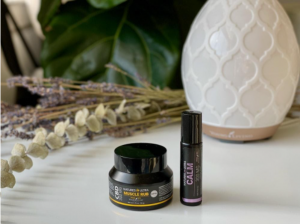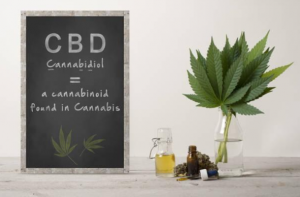CBD is a cannabinoid, a molecule found in hemp, a form of cannabis Sativa plant. Another variety of cannabis plants, methamphetamine, contains some CBD but a lot of THC (tetrahydrocannabinol), an intoxicating endocannabinoid that makes people feel stoned or high. While CBD does not make you high, it does interact with the endocannabinoid system in your system. It may offer effects that osteoarthritis sufferers are looking for, such as pain reduction, decreased inflammation, and quality of sleep and relaxation.

Even if you don’t reside in a place where recreational and medicinal marijuana is allowed, CBD Edibles like capsules, chocolates, sweet treats, infusions,, and lotions are available all over the world wide web, in major drugstore chains, and possibly at your local supermarket.
What Kind of Drug Interactions Can Happen With CBD?
The same wide family of liver enzymes known as CYP450 breaks down a vast range of medicines, including CBD.
CBD inhibits some proteins in this family. This causes patients to break down some pharmaceuticals more slowly, increasing the risk of adverse effects unless your doctor lowers the amount. On the other hand, CBD activates other proteins in this family, speeding up the breakdown of certain medications, making them potentially less efficacious unless the dose is raised.
- When CBD is used with certain medicines, for example, you may have more negative effects:
- Antidepressants are medications that are used to treat depression (such as fluoxetine or Prozac)
- Medications that might make you drowsy (antipsychotics, benzodiazepines)
- Antibiotics containing macrolides (erythromycin, clarithromycin)
- Medication for the heart (some calcium channel blockers)
A lot of questions remain concerning how CBD combines with the body’s drug-metabolizing proteins. We understand exactly that CBD affects some drug-metabolizing proteins but not others. However, there are many more about which we don’t currently have any knowledge.
What Exactly Do We Know Regarding CBD’s Contraindications with Other Medications?
Studies on Epidiolex, the only FDA-approved CBD medicine intended to treat uncommon kinds of epilepsy, provide the most precise information. Epidiolex has been observed to cause a 30% rise in blood levels of the brain with thinner anticoagulation, increasing the risk of bleeding. It can also interfere with other epileptic drugs.
The FDA has urged Epidiolex’s producer to undertake further pharmacological and toxicological studies, so we’ll learn more about CBD’s complications with other medications in the future.

Is It Possible for CBD To Interfere with The Drugs I’m Taking for Arthritis?
Based on what we currently know about how CBD is processed, I don’t anticipate any substantial drug-related problems with popular arthritis medications like methotrexate or most conventional anti-inflammatory treatments (NSAIDs). I’d exercise caution with one NSAID, misoprostol, because there’s no evidence on how CBD interacts with the enzyme that metabolizes it, if at all.
Primary care doctors are continually on the lookout for liver issues that might be caused by arthritis drugs, such as CBD, NSAIDs, and methotrexate.
Is It True That Elderly Persons Are More Susceptible to CBD Medication Interactions?
Yes, for a variety of reasons. Our hepatocytes and kidneys may be harder to remove medicines from the body as we become older. Furthermore, because older patients and those with chronic illnesses are more prone to take many drugs, the risk of prescription medications rises.
Conclusion
The mainline is that if you want to try CBD, you should always visit your doctor first, particularly if you have a health issue and are taking drugs. Unless your doctor has permitted you, don’t stop using your prescription meds to try CBD.
CBD can engage with pharmaceuticals that come with a warning. Even if you take one of these drugs, your doctor may be able to come up with a strategy that benefits you if you have your prescription levels closely monitored. As a result, you’ll be able to utilize both your prescription and CBD as a treatment.

